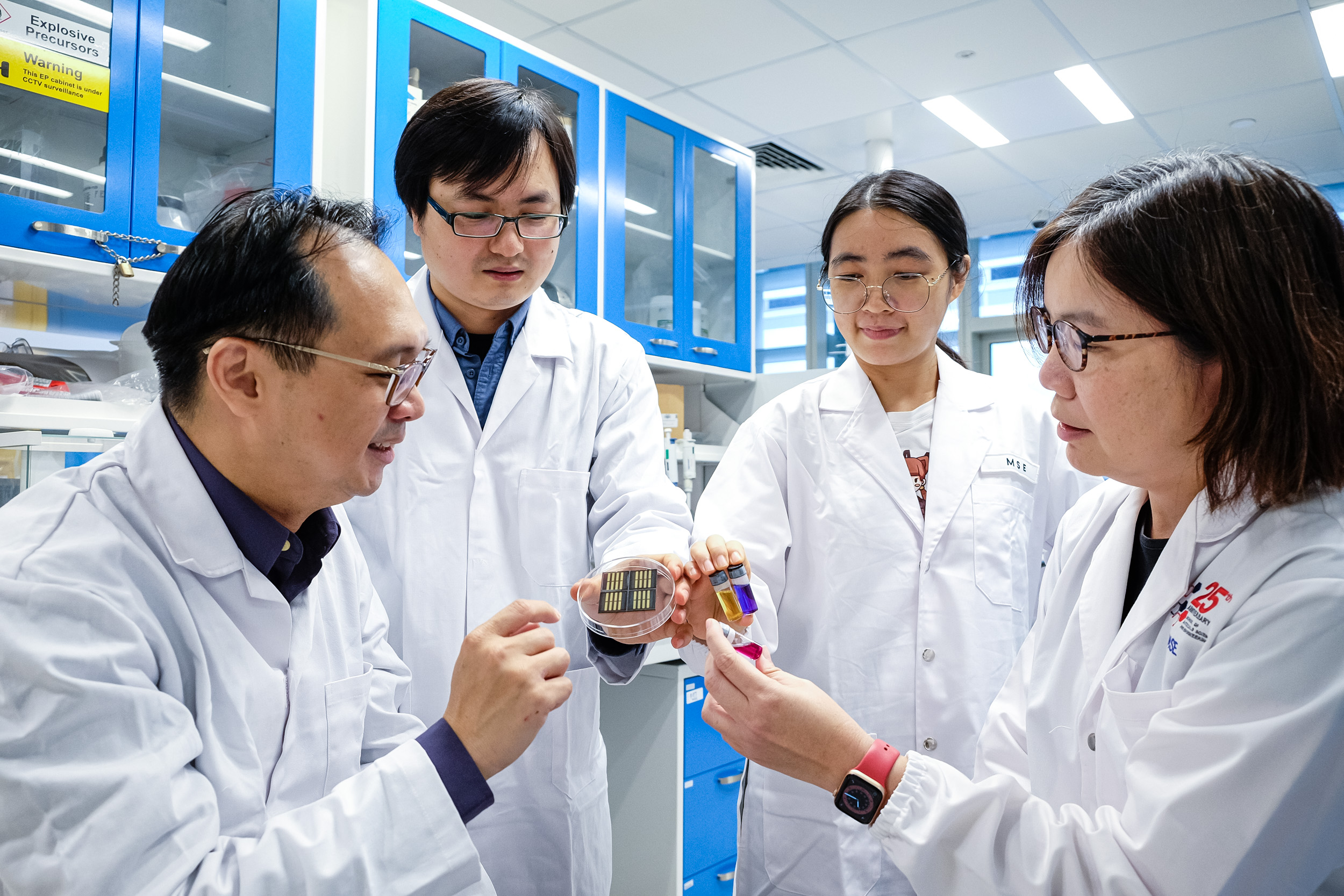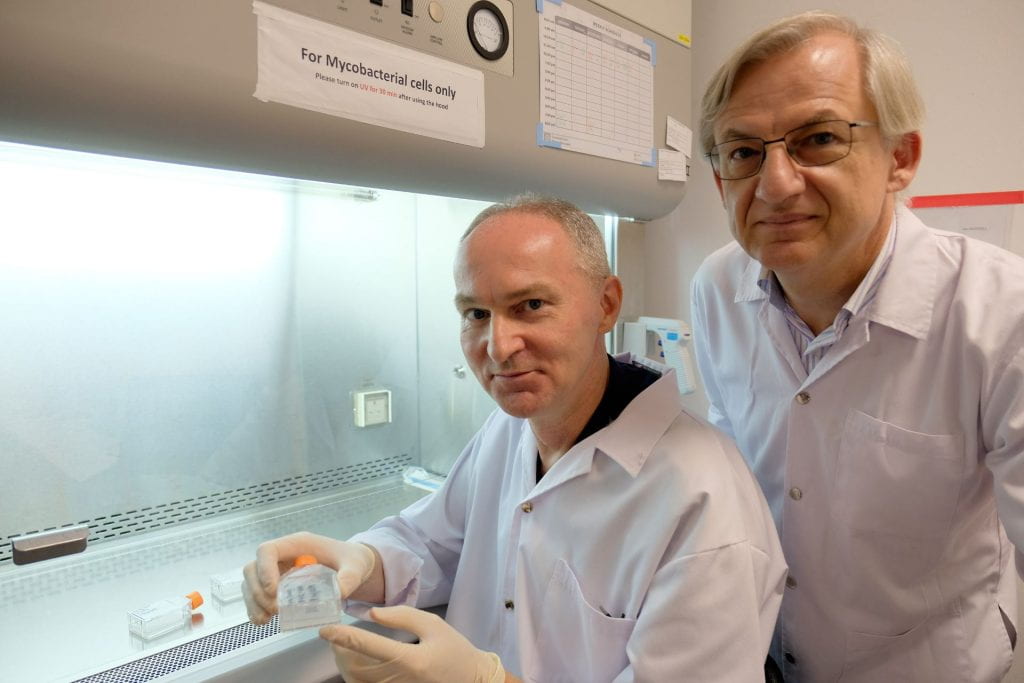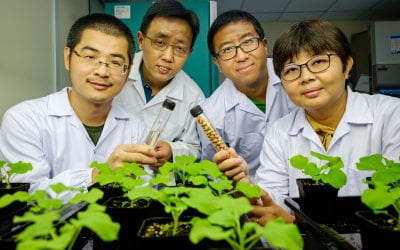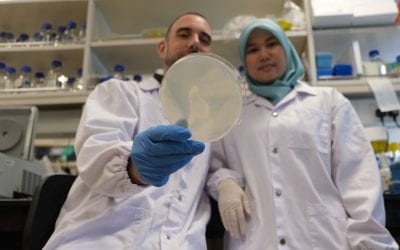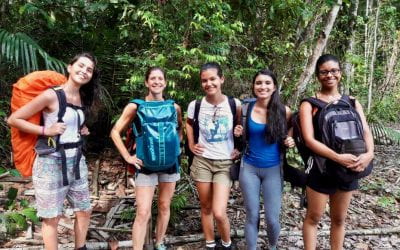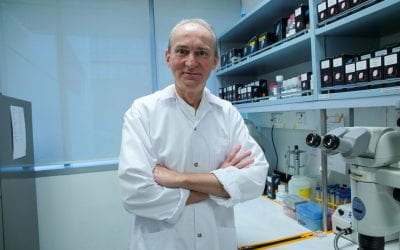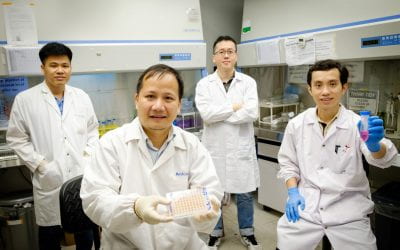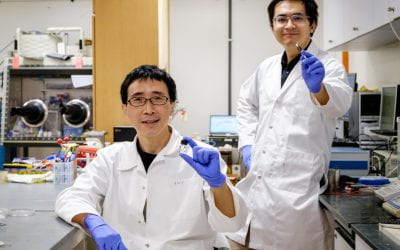Efficient, stable and eco-friendly perovskite solar cells may be on the horizon, thanks to an innovation spearheaded by NTU Singapore scientists. Solar cells made from perovskite, a material that is able to harvest sunlight and convert it to electricity, hold great...
Sea-level rise drove prehistoric human migration in SEA: Study
An interdisciplinary team of scientists at NTU has found that rapid sea-level rise drove early settlers in Southeast Asia to migrate during the prehistoric period, increasing the genetic diversity of the region today. The Malay Peninsula and the islands of Sumatra,...
Combatting tuberculosis, the “captain of all these men of death”
Since the first antibiotic penicillin was discovered, it has been an arms race between humans and the pathogens that cause disease. The World Health Organization lists antimicrobial resistance as one of the top public health threats facing humanity. Especially...
NTU Singapore scientists genetically engineer plants to yield more vegetable oil
Scientists from Nanyang Technological University, Singapore (NTU Singapore), led by Associate Professor Gao Yonggui and Assistant Professor Ma Wei, have successfully bioengineered and improved a plant protein that is responsible for oil accumulation in plant seeds and edible nuts. Using their patent-pending method, plants which have the modified protein can accumulate up to 15 – 18% more oil in their seeds.
Manipulating stress response in cells could help slow down ageing, finds NTU Singapore study
Scientists at Nanyang Technological University, Singapore (NTU Singapore) have found that a stress response in cells, when ‘switched on’ at a post-reproductive age, could be the key to slow down ageing and promote longevity.
Amazon’s growth limited by lack of phosphorus
Growth of the Amazon rainforest in our increasingly carbon-rich atmosphere could be limited by a lack of phosphorus in the soil, new research shows. The study, published in the journal Nature, was carried out by an international team led by Brazil’s National Institute of Amazonian Research (INPA), the University of Exeter, and Nanyang Technological University.
Topping the fight against multidrug-resistant tuberculosis
TOPNet, a collaboration between scientists from NTU and the Experimental Drug Development Centre, aims to develop new solutions to treat the ancient disease.
NTU Singapore scientists design compound that targets enzyme linked to autoimmune disorders and severe COVID-19
When the body detects a pathogen, such as bacteria or viruses, it mounts an immune system response to fight this invader. In some people, the immune system overreacts, resulting in an overactive immune response that causes the body to injure itself, which may prove fatal in some cases.
Now, scientists from Nanyang Technological University, Singapore (NTU Singapore) have created a compound that could help to reduce this overactivation without impairing the body’s entire immune response.
Weird Flex But Okay: Researchers Develop a Superior Piezoelectric Material
A newly-developed piezoelectric material can flex forty times more than its competitors, opening the way to better micro machines.
Say No to Transplant Rejection
During organ transplantation, the donor organ is almost always recognised as foreign by the recipient’s immune system. When organ rejection is cell-mediated, it can be treated with steroids. Alloantibody-mediated organ rejection, however, often leads to transplantation failure.

